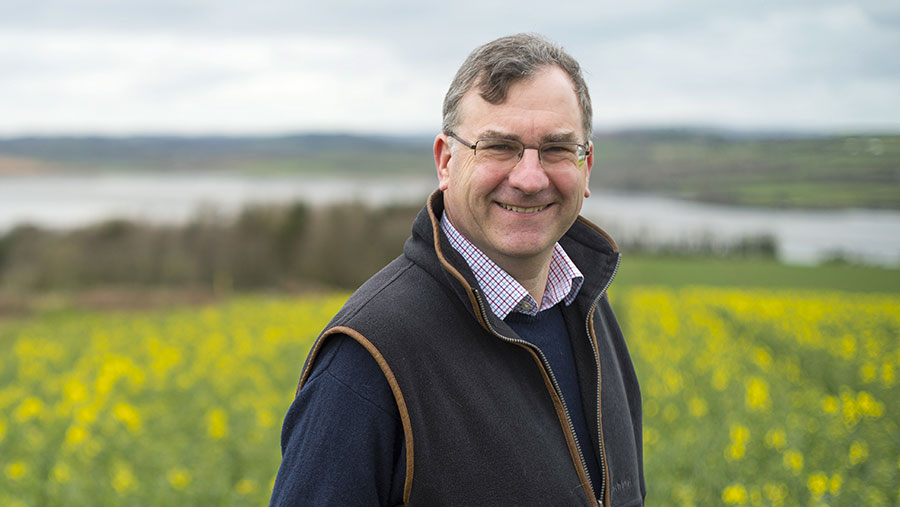Farmer Focus: Making hay while arable crop prospects wilt
 © Jim Wileman
© Jim Wileman Oh boy, it is very dry. I hope that by the time you read this we will have had some rain. Our combinable crop prospects for the year in certain places are moving along the scale by the day from fairly average to potentially poor.
We have seen a range of growth stages within crops at the same time like never before. It’s not all bad, there are some good fields in among it all, predictably the ones sown on time into good conditions on the better land. However, even these are starting to take a yield hit now.
See also: Virus-tolerant barleys could offer insecticide-free future
The upside of a prolonged dry spell is that there is no impediment to getting on. We have made some excellent baled silage, albeit with fewer bales than usual.
In a normal year I can generally reckon on making all the silage we need in one cut, however, not this year. A second cut will be required.
I have also, I think for the first time in my life, made hay in May. Again it was tip-top stuff, but I fear it could well be required soon.
I count my blessings that I have some carry-over of both from last year to boost stocks, which proves the old adage right, that you can never have too much hay, silage and straw around the place. Nature will make sure that you need it.
Potato, onion and daffodil crops are not really showing signs of drought stress yet. We are irrigating where we can. Irrigation is never straightforward, but I’m mighty glad that we have the facility, at least on part of our farmed area.
It is rather ironic that with hay and silage done, the sheep shorn and generally being caught up we would have been in a rather good place to have a few days off for the Royal Cornwall Show.
Unfortunately that, like most other events this year, has been cancelled due to the Covid-19 situation.
I sincerely hope that the various show societies around the country are able to survive 2020 and rebuild into the future, as not being able to attend has really brought home how important these events are to the wider rural community.
Jeremy Oatey manages 1,200ha of arable land near Plymouth in Cornwall and is 2013 Farmers Weekly Arable Farmer of the Year. Cropping includes wheat, barley, OSR, oats, beans, potatoes, onions, swedes and daffodils.
